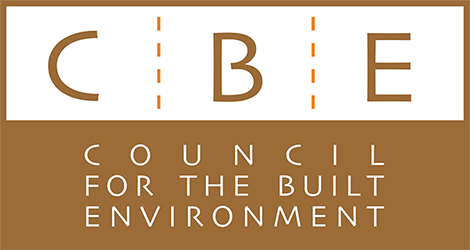Public Protection, Policy and Legislation
Public Protection, Policy and Legislation
This programme ensures that the CBE acts as an appeal body on matters of law regulating BEPs, and promotes sound governance of the Built Environment Professions. Its focus areas are:
- Finalisation of appeals within the statutory 60 days of lodgement
- A Corporate Governance Framework for the six CBEP
- Formalising Identitification of Work (IDoW)
- Translation of BE ministerial policies into rules
- Alignment and compliance by the CBEP with the PFMA
- A Monitoring and Evaluation Framework for the six CBEP
POLICY ON CONDUCTING APPEALS
The Council for the Built Environment (CBE) has the statutory mandate to decide on appeals lodged by any person aggrieved by a decision of any of the Councils for the Built Environment Professions (CBEP). The CBE is required to appoint an Appeal Committee, constituted in a prescribed manner. The Appeal Committee will conduct an appeal in a lawful, reasonable and procedurally fair manner, and must decide on an appeal within 60 days of its lodgment.
This policy intends to establish a procedure for conducting appeals in a lawful, reasonable and procedurally fair manner that is cost- and time effective.
Click here for the Appeal Process and Appeal form.
For enquiries on appeals contact:
Ms Meltonia Chiloane
Legal Compliance Specialist
Email: meltonia@cbe.org.za
IDENTIFICATION OF WORK
Identification of Work is the work identified by any of the six Built Environment Professional Councils that may only be performed by persons registered in any of the categories of registration recognised by that particular professional Council according to that profession’s Act.
Identification of Work is called for in section 20 of the CBE Act as a means of designing policies and arrangements, assuring that all professions and categories of registered persons are treated in an equal manner in the universe of the built environment, increase competitiveness and to allow effective competition within the various professions.
Identification of Work is a concept that is used in defining practice and services by registered persons under legislation regulating built environment professions. While it articulated a boundary management system, it is not merely about distinguishing one profession or category of registration within a profession from one another, but it is also about managing the boundaries around the whole family of professions and their mode of interaction to deliver an efficient system.
Purpose of identification of work is to:
- Provide a coordinated framework for the demarcation of functions, professions and professional categories of registration to affect the principles of built environment professions regulations.
- Provide a framework for utilising competencies as a single source of defining minimum entry standards according to the registration of qualifications and accreditation of programmes set by the South African Qualifications Authority (SAQA) and Council for Higher Education (CHE).
- Provide for the effective and efficient utilisation of mechanisms of addressing and recognising overlaps and duplications in certain professions.
- Ensure that professional functions are performed only by persons with the necessary competence. It is primarily on the basis of public health and safety that regulation of the profession is motivated in South Africa.
- Maintain quality and standards, as well as value for money.
- Increase uniformity of standards.
- Create an enabling environment in which qualified persons are able to receive recognition for their competence and in which the minimum competence requirements for functions are identified in a realistic manner.
